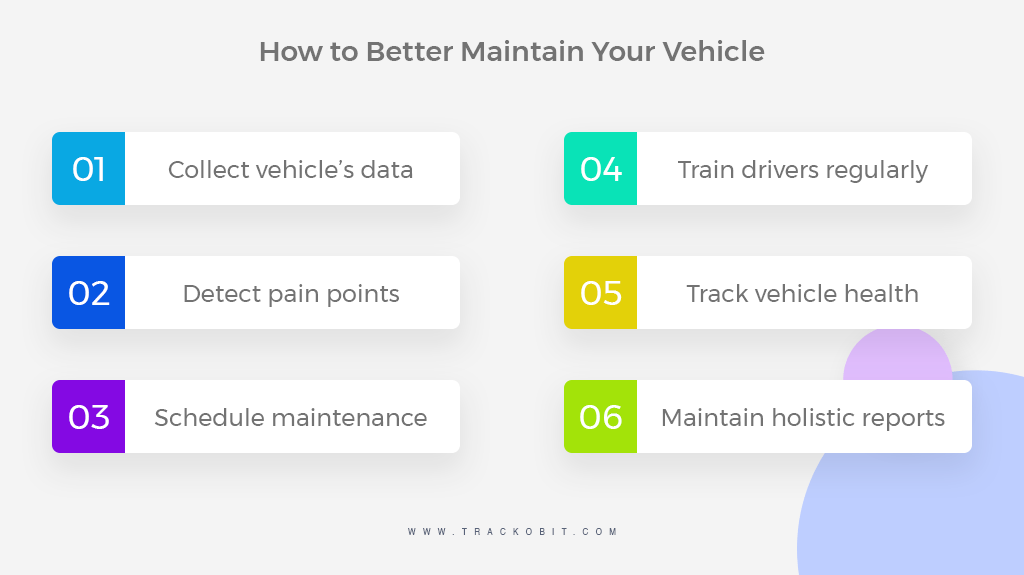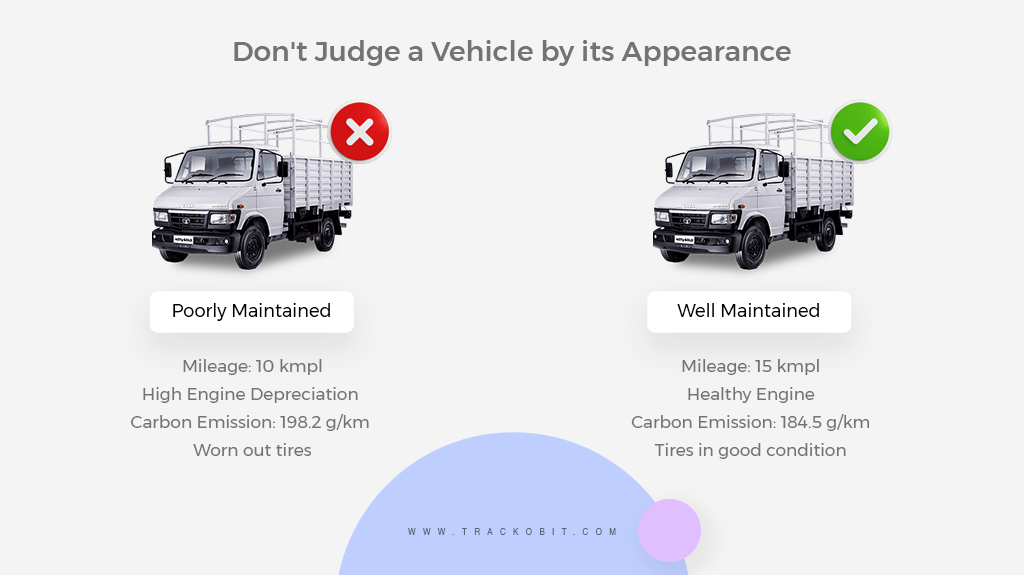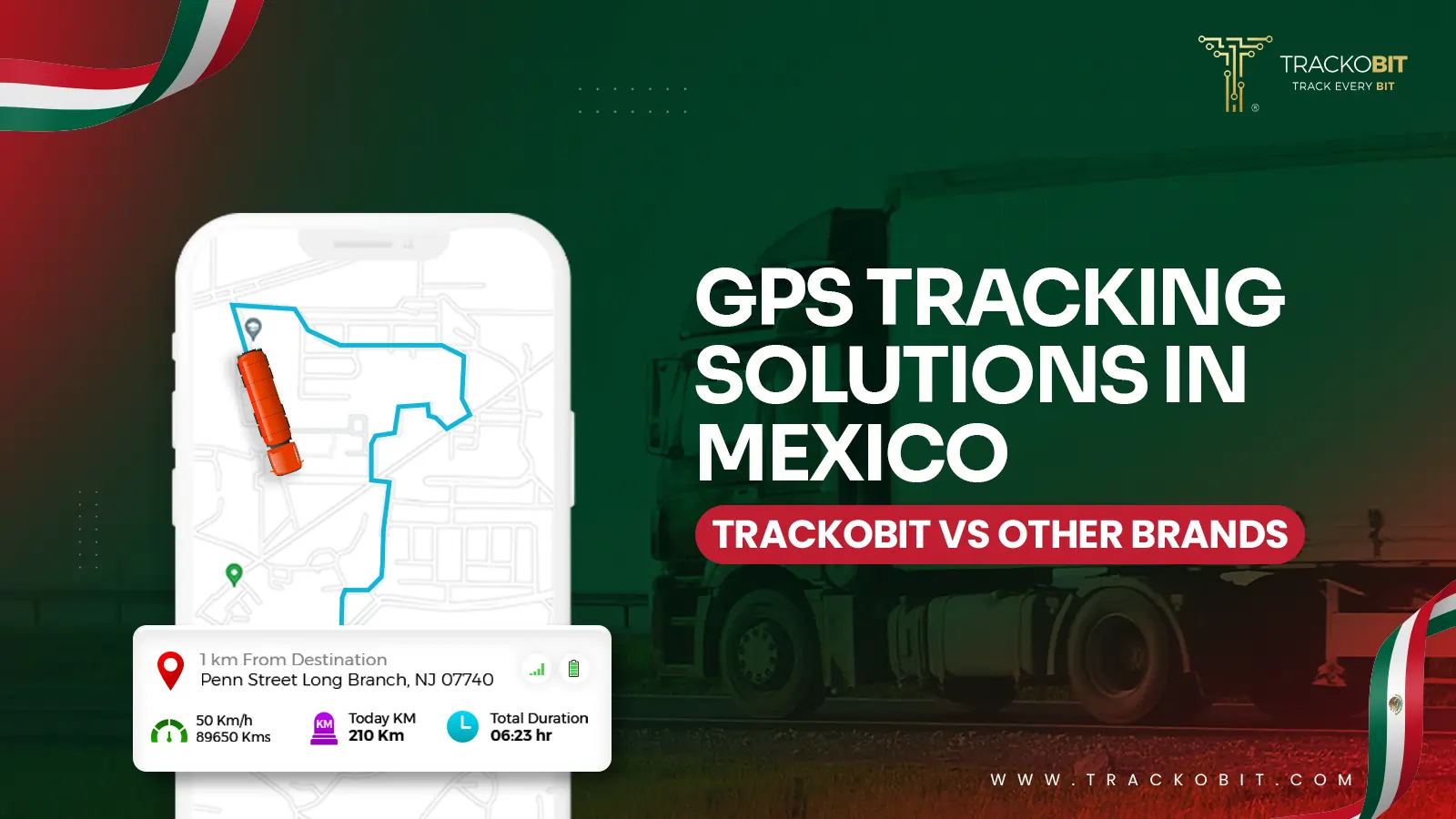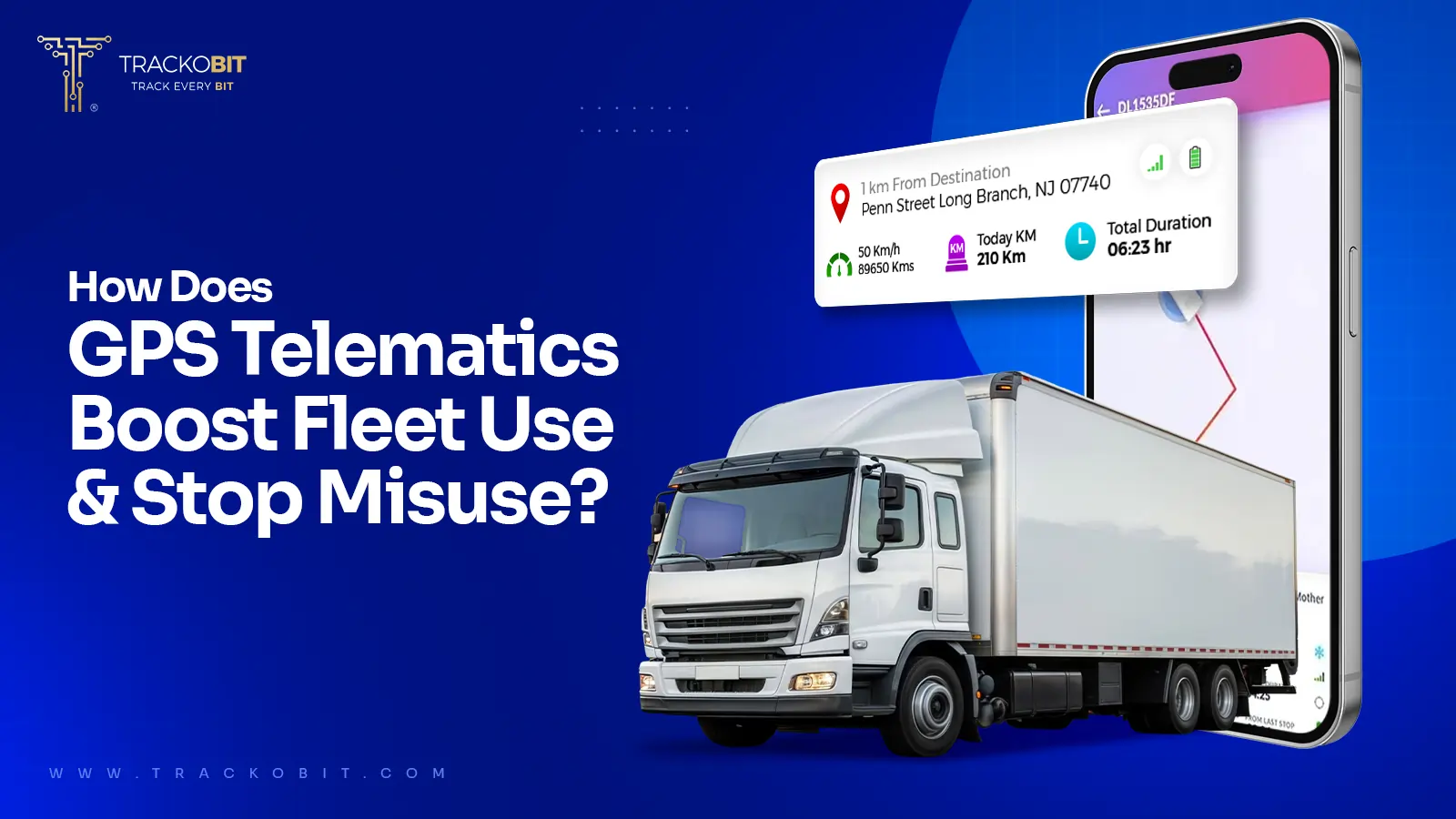-
TrackoBit
Manage commercial vehicles with the new-age Fleet Management Software
TrackoBit -
TrackoField
Streamline your scattered workforce with Field Force Management Software
TrackoField -
Features Resources
-
Blog
Carefully curated articles to update you on industrial trends. -
White Paper
Insightful papers and analysis on essential subject matters. -
Glossary
Explore an alphabetical list of relevant industry terms. -
What’s New
Get TrackoBit & TrackoField monthly updates here. -
Case Study
Explore the cases we solved with our diverse solutions. -
Infographics
Explore key topics through visually impactful infographics.
-
About Us
Get to know TrackoBit: our team, ethos, values, and vision. -
Careers
Join the most dynamic cult of coders, creatives and changemakers. -
Tech Support
Learn about our technical support team and services in detail. -
Events
Check out the exhibitions where we left our marks and conquered. -
Contact Us
Connect with us and let us know how we can be of service.
How Regular Maintenance Affects Vehicle Performance
- Author:Ayushi Nagalia
- Read Time:8 min
- Published:
- Last Update: November 9, 2023
Table of Contents
Toggle
Fleet maintenance can be beneficial for both, the fleet business and the environment alike. This is why the fleet management system helps companies ensure that their fleets are in good shape.
Table of Contents
Toggle
The world is changing and so is the fleet management software industry. Recent years have experienced a shift in how every industry looks at their products with climate change taking the reins of several of their agendas. From the United Nations general assembly to the COP summits, all nations have started their drive towards sustainability.
You might be wondering how the fleet management system comes into this picture. Well, what if we told you that almost 90% of transportation-related pollution comes from road vehicles in India? Sounds quite concerning, doesn’t it?
Globally, the logistics industry accounts for almost 5.2 Trillion dollars. This gives a rough picture of how many vehicles on the roads are related to the industry. But how can we draw mass businesses into this movement? It is by educating businesses about how polluting vehicles hit their budgets just as hard as they damage the environment.
Do not believe us? Let us look at this issue closely.
How Can Poor Maintenance Affect a Vehicle’s Performance?
The biggest reason behind a vehicle’s polluting nature is the lack of proper maintenance. When a vehicle is on the road, its engine works to convert fuel into energy via combustion. But this combustion does not consume the entire fuel and the toxic residue gets released into the air. The amount of residue a vehicle excretes is directly related to its health.
A well-maintained vehicle will have lower pollution levels and vice-versa. For fleet businesses, a vehicle in bad shape can also mean higher costs. Here are some reasons behind this:
- High Fuel Consumption: A vehicle that is in poor health will need more fuel than an ordinary one to run the vehicle. For example, a truck with an ill-maintained engine is likely to need more fuel as it will require more energy to operate the same ways it did when it was new.
- Excess Carbon Emission: We discussed above how carbon emissions can increase with lacking vehicle maintenance. As governments are slowly introducing fines for polluting vehicles, fleet businesses have no choice but to make operational changes and reduce their emissions. After all, heavy fines can burn fleet owners’ pockets very quickly.
- Prone to Accidents: Not maintaining a vehicle is like tampering with its safety. How? Every part of the vehicle’s machinery plays a crucial role in its running. If even a single one is not working properly, the entire mechanism can malfunction. When on a road, such instances can lead to serious accidents and might even result in fatalities.
- Higher Downtime: When a vehicle becomes unfit to function and has to spend excess time on repairs, its productivity comes down significantly. For a fleet business incharge of several tasks at the same time, time inefficiency can translate to monetary losses.
Causes of Vehicle Depreciation Leading to Low Performance
Vehicle depreciation can be due to several reasons. Many fleet businesses get stuck in their own cycle of bad vehicle health. They do pay attention to their vehicle’s condition and in turn, end up hurting them to the point of no return. This adds to the expenditure these businesses were hoping to save by skipping regular maintenance.
Some of the common reasons why a vehicle faces the issue of low productivity are:
Ignored Maintenance
To understand this better, it is very important that we understand the types of maintenance that a fleet manager needs to ensure for their fleet. While divided into several kinds, maintenance can broadly be divided into two types. These include:
- Preventive Maintenance: As the name explains, these maintenance procedures are useful in detecting issues with a vehicle before they turn into bigger problems. For example, if a vehicle has a tyre with low pressure, not noticing it on time can lead to accidents that can irreversibly damage the vehicle.
- Corrective Maintenance: Corrective maintenance takes when a vehicle has a fault and it needs repairing. This helps the vehicle get back to its original conditions and become fit for tasks again.
Both these forms of maintenance play a huge role in ensuring that the vehicle stays healthy for a long period of time. Managers ignoring even one of these forms of maintenance can result in serious repercussions in the long run in the form of both resource and monetary loss.
Constant Accidents
Accidents are very common when a vehicle is out on the road. Whether it be of a small scale or one causing large damage, fleets have to be prepared to deal with such a situation. But what if fleet managers do not prepare for such incidents? Such a situation might lead to a business getting stuck in a vicious cycle.
Every time a vehicle encounters an accident, it walks away from the situation with some form of damage. Immediate steps to resolve this issue can ensure that the vehicle is fit to run on the roads soon. But staying ignorant of them means there is a chance that this damage will slowly evolve into bigger issues. Sounds like a problem right? That too one that could have been easily resolved.
Driving Practices
When on the road, the driver is responsible for the way they drive a vehicle. A good driver can ensure that the damage their vehicles incur during a journey is as little as possible. But on the other hand, an irresponsible driver will indulge in harsh driving. Harsh driving practices can not only lead to accidents but can also cause vehicle wear and tear.
A vehicle often subjected to abrupt braking and acceleration will have worn-out tyres that make it difficult to control the vehicle. In the long run, such vehicles will also face engine issues as harsh driving practices put immense pressure on the engine’s health. Idling is also a major contributor to a vehicle’s engine depreciation.

Steps to Maintaining Good Vehicle Health
Managers have to shoulder the responsibility of optimising a fleet business, being the liaison between drivers and owners. When it comes to vehicle maintenance, how can they ensure that all their vehicles are in pristine condition? Here is a step-by-step guide.
- Access Current Data: The first step is to properly understand a fleet. But for this, managers need to collect data on the fleet’s ongoing operations.
- Detect the Issues: The next step is to study this collected data to detect the fleet’s shortcomings. It is impossible to impose changes when you do not understand what the fleet’s pain points are.
- Formulate Maintenance Program: Now that managers know what aspects of their fleet are lacking, they can formulate plans to correct these issues. This can be in the form of a maintenance schedule consisting of regular checkups.
- Train Drivers to Adopt Eco-driving: Drivers play an important role in ensuring vehicles stay on top of their game. This is why they need to be introduced to the idea of eco-driving. This helps them drive in a way that consumes less fuel, in turn leading to less pressure on the vehicle.
- Keep Track of Corrective Maintenance: After all these steps, the final step is to stick to the maintenance schedule. Nly fleets careful of their vehicle’s corrective maintenance will be able to cut down on their repairs.
How Regular Maintenance of Vehicles Result In Better Profits
The golden question! Can investing in a fleet management system be of any help? Yes of course it can. When we say that a fleet management system is a holistic toolkit designed to optimise every aspect of a fleet, we mean it. Some of the ways businesses can ensure their fleets run in good condition are:
- Vehicle Diagnostics: When connected to the OBD device of the vehicle, this software can get live updates on the vehicle’s condition. This might include their tyre pressure, engine health and so on. Managers can act on these updates if any of the data received is concerning. Thus, minor issues are prevented from converting into major setbacks for the fleet business.
- Servicing and Maintenance: The system allows managers to schedule their servicing processes well in advance. This means they do not have to track upcoming maintenance procedures and check-ups manually, eliminating any chance of forgetting them. Thus, by constant supervision of their health, vehicles last a lot longer.
- Driver Behaviour Monitoring System: How a driver drives a vehicle directly impacts the amount of depreciation a vehicle accumulates in the long run. This system allows managers to cut down on bad driving practices with live alerts and reports.
Fleet Maintenance from the Lens of Climate Change
Climate change is here and it is only when we start thinking about how little steps towards sustainability can we mitigate the challenges that lay in front of us. But you might be wondering, how is my fleet affected by climate change? If we look at the beginning of the blog, it becomes clear that the pollution levels caused by road transportation vehicles are immensely harmful.
A study by WHO revealed that pollution is the reason behind almost 4.2 million deaths each year. A huge number indeed!
But how can you as a fleet business make change happen? Well, it is the small things that ultimately count. Even the simple act of maintaining vehicles in good health can make a great contribution to change. Through this blog, we have understood how a vehicle’s health is relevant to its performance which ultimately affects a business’s productivity. Thus, proper maintenance is a step as essential to a fleet business’ profits as it is to the environment.
Though electric fleets are a good initiative for sustainability, we still have a long way to go. Currently, only around 8,151 thousand electric vehicle units are running globally. This is the reason why automating management and optimising operations is the need of the time. It helps fleet businesses introduce change without the added cost of replacing existing assets as well!

Is Your Fleet Sustainable?
Throughout this blog, we have looked at several ways a vehicle’s maintenance can have an effect on its performance. But the first image our mind conjures up when we think of a well-maintained vehicle is a vehicle that looks almost spotless. Do not judge a book by its cover though! Even vehicles that look good might have bad diagnostics and vice-versa. It is internal health that ultimately matters.
The fact that your fleet business might be contributing to climate change is very hard to fathom. But ultimately the time to think and consider change is not a liberty we can afford. This is why fleet management software seems a necessity in today’s world. But which one is the right choice?
Well, it makes sense to trust a business that has its results backing them up right? This is why TrackoBit, a leading GPS tracking software with its impressive customer reviews, is the perfect investment that can lead to amazing returns.
Request a demo and check it out for yourself!
Ayushi Nagalia is a Senior Content Specialist at TrackoBit. She is a marketing maverick with a lush background in literature. With years of experience crafting content for various niches, she speciali... Read More
Related Blog
-

How GPS Resellers in the USA Grow Recurring Revenue with White-Label Fleet Software?
Anvesha Pandey 3 July 2025Are you a GPS reseller in the USA? Learn how to ditch one-time sales and build a recurring revenue empire with white-label fleet software.
-

9 Things System Integrators Look for in a Vehicle Tracking Software
Anvesha Pandey 27 June 2025Searching for client-ready vehicle tracking software? Explore 9 must-have features system integrators swear by, and how TrackoBit fits the bill.
-

Comparing GPS Tracking Solutions in Mexico: What Makes TrackoBit Stand Out
Anvesha Pandey 23 June 2025Operating a fleet in Mexico and unsure which software to choose? This guide offers a detailed comparison to help you pick the right fit for your business.
-

How Mexican Leasing Companies Track Fleet Usage & Misuse with Video Telematics?
Anvesha Pandey 16 June 2025Struggling with asset misuse and low utilisation in Mexico’s vehicle leasing business? Here are several ways that video telematics and GPS software may revolutionize accountability, control, and tracking.

Subscribe for weekly tips to optimize your fleet’s potential!
Your inbox awaits a welcome email. Stay tuned for the latest blog updates & expert insights.
"While you're here, dive into some more reads or grab quick bites from our social platforms!"Stay Updated on tech, telematics and mobility. Don't miss out on the latest in the industry.
We use cookies to enhance and personalize your browsing experience. By continuing to use our website, you agree to our Privacy Policy.

































